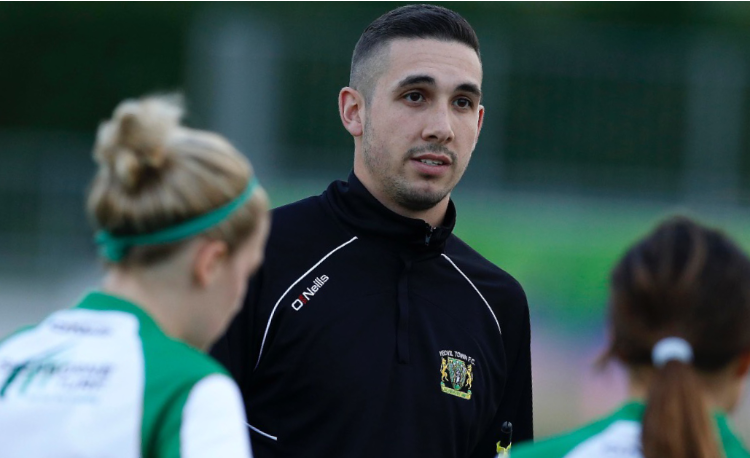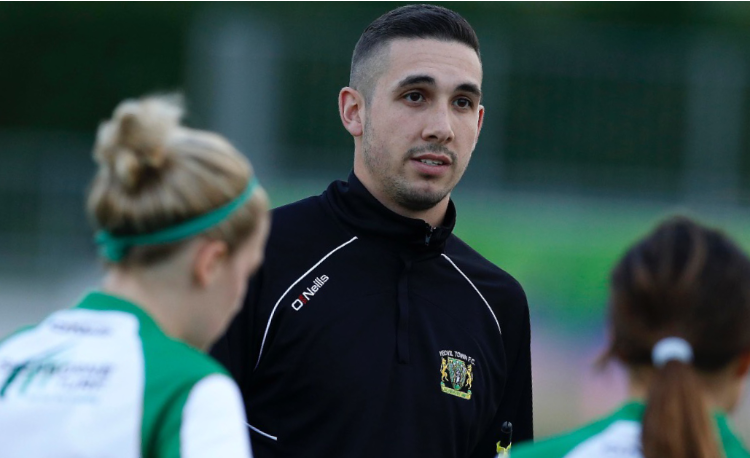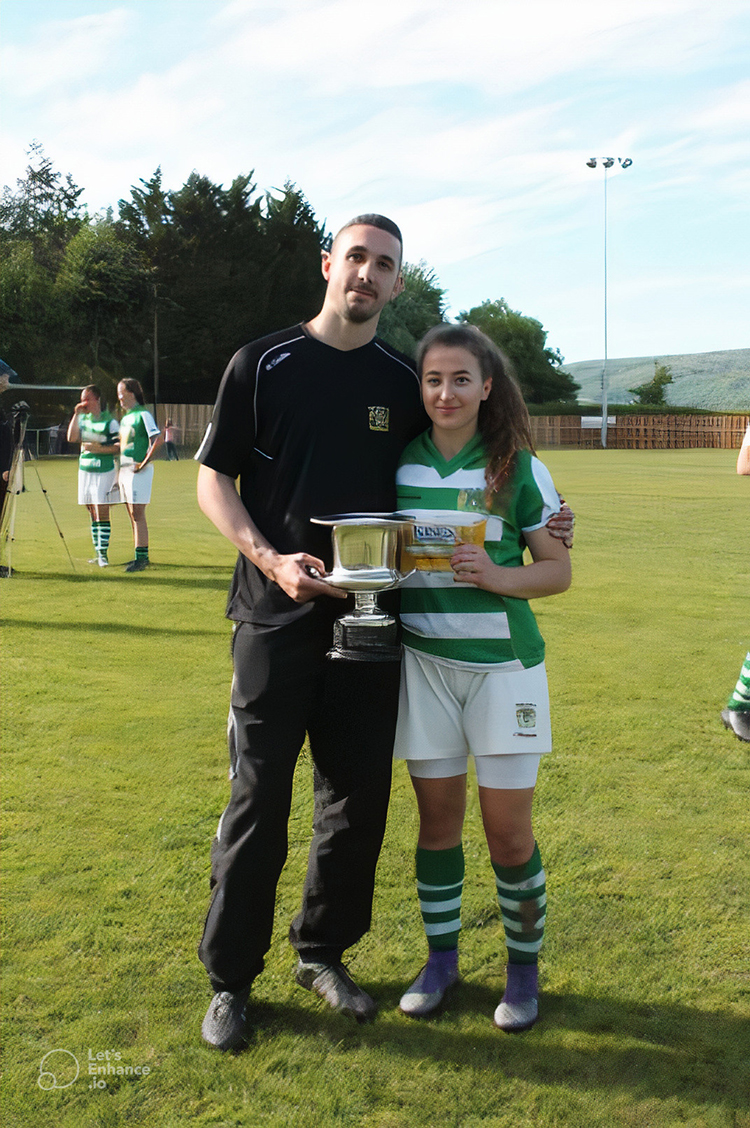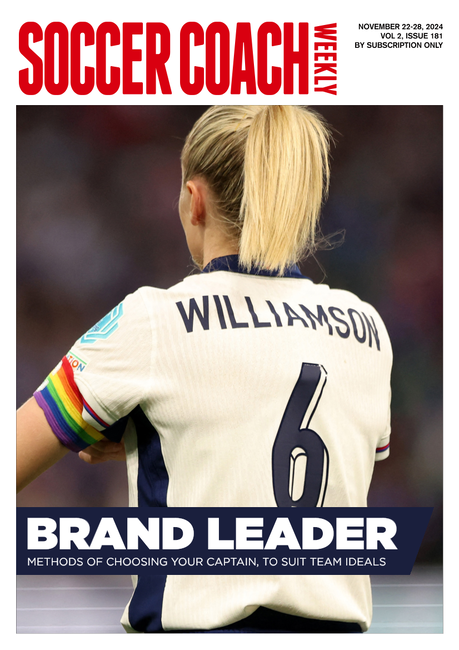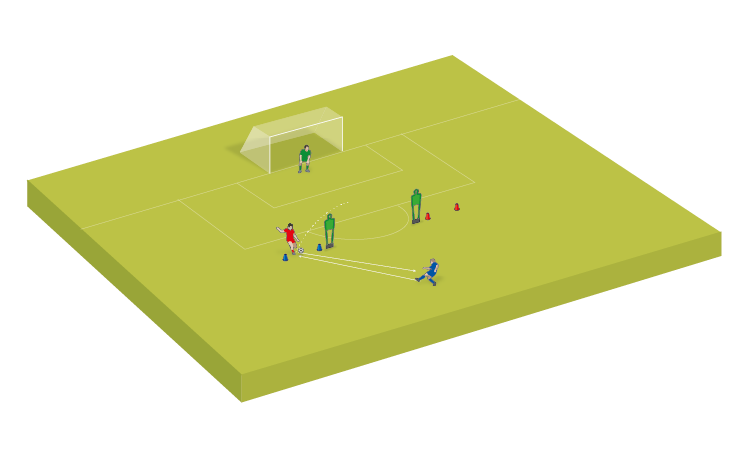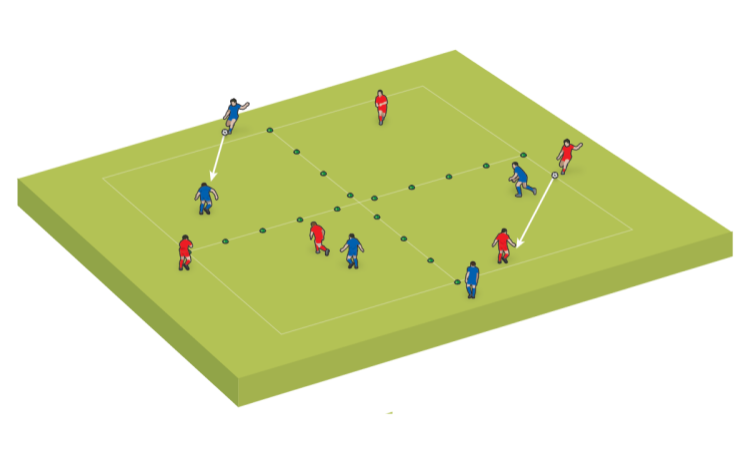Wesley Gullin: 'I try to bring fun'
When it comes to developing promising young talent into senior stars, Wesley Gullin tells Steph Fairbairn it’s all about engagement through enjoyment
Wesley Gullin started coaching in the early 2000s, in his hometown of Watford, just north of London.
In 2013, a job with Yeovil Town Ladies took him to the south-west of England. Wesley has since immersed himself in girls and women’s football in the region – coaching at Yeovil, founding Sherborne Town Ladies, and working at both Somerset and Dorset Advanced Coaching Centres (ACCs).
Now called Emerging Talent Centres (ETCs), they are run by the Football Association (FA) with the aim of furthering the development of female players.
SCW caught up with Wesley to find out more about the ETCs, what coaching in one looks like and who he is as a coach...
SCW: What makes a good ETC?
WG: "Firstly, the FA does a really good job of getting good people to run them. Rachael Lawler-Edwards [ex-Yeovil captain] was in charge of Somerset ACC when I was there.
"What a person she is, a role model for young footballers - not just what she’s done with her playing career [eight years at Yeovil, including playing in England’s second tier] but in terms of how much she cares about players and wants the best for them.
“At Dorset, it’s exactly the same with [ex-Yeovil and Portsmouth player] Jemma Tewkesbury, who runs that one. She’s done incredible things with her playing career, but she can’t do enough for the girls.
"She gives great advice and is strict when she has to be, which is something I’m sure they appreciate.
“Look at their record of players they’ve produced. We’ve got Maddison Stanbury, who has just come through Dorset ACC and now plays at Arsenal and for England youth.
“Maddison came through very fast and was incredibly motivated. Having that environment for her to achieve those things is incredible. It’s a massive credit to Jemma."
SCW: Is coaching in these centres heavily linked to the FA DNA and the ’four corner’ model?
WG: "Ultimately, the idea is to prepare players for the next stage of their journey along that pathway. The England DNA plays heavily into that.
"We’ve got amazing coaches in those programmes, as well. Martin Dighton is just so talented. I’ve been incredibly lucky to watch him coach.
“The work he and George Smith have done is amazing. The group they’ve got is just absolutely incredible, I can’t say enough about them.
"I have a laugh with players. If it’s serious, they’re not as free to express themselves..."
“Jemma and Rachael seem to find these incredible coaches that are really dedicated and passionate. They’ve done a fantastic job, I can’t praise them highly enough."
SCW: Who do you think you are as a coach? How does that differ in a club environment?
WG: "I always try and bring some fun to coaching. I try and have a laugh with players, because I think if it’s too serious, they’re not as free to express themselves.
"Different players retain information differently - there’s always different styles of learning. Knowing the players fully will allow you to develop your sessions to cater for all those different styles.
"I try to notice as much as I can, and bring a bit of fun to sessions to help players to relax and feel comfortable so if they don’t know something, they can question it, or ask why they’ve been asked to play a certain way. They should be free to ask questions and come forward.
“I’ll always try to be that coach. When coaching at club football, I don’t think I change - it is naturally in me to want players to ask questions and feel comfortable.
"That’s probably who I am as a coach. Make sessions as fun as possible, try and get players to enjoy playing football, so they’re in the best mindset to learn and to improve.”
SCW: How do you go about creating a space where it can be fun but there are also boundaries and people know the right behaviours. How do you strike that balance?
WG: "I’ve always used senior players. In any squad, you can quite quickly identify players that have got really high standards.
"Something I’ve always liked doing is making an example of those players to say, ’This is what I really value in a player’, in terms of good leadership and setting a good example for younger players.
“Having those members in your squad, quickly identifying them and drawing on that helps set an example for the rest of the squad. And I think, quite quickly, the squad can see what a coach wants from them.
“The girls here are having great fun. I look over and there’s massive smiles on their faces. In the past, you would have struggled with attendances for that age group - now I look over and there are 20 of them every session, because they want to be there. They love the environment that’s been created."
SCW: In terms of your sessions, what does preparation, planning, delivery and reflection look like? How forward-looking are you and the ETCs in terms of planning?
WG: "It’s very structured. The centre leads give us the freedom to plan the session as we want to, within that England DNA and the structure they want us to get across.
"There’s enough freedom there for you to be creative. Every squad will be different and have different needs, so there’s enough freedom there to do that.
“But I think the model needs to prepare players for that next stage of the journey. They need to know how an England team presses. Then within pressing - whether it’s a low block, a mid-block, a high press - they need to know how to do that, and how it relates to their specific position.
“There’s a great level of structure but, like I say, there is that freedom for coaches to be creative, and to give their squad what they need.
"It might be that they work on that specific pressing pattern for a few weeks, because that’s what their squad needs."
SCW: There is an ongoing effort to improve kids’ experience of football, whether they ’make it’ or don’t. How important is that to you and your coaches? How do you make sure that is present in everything you do?
WG: "Player welfare is the top priority for all the coaches in the programme. It’s just so visible that everybody cares about those players.
"Quite a lot of these girls are going into senior football at a really high level..."
"It goes back to selection, in terms of who they bring in as coaches and even who they have as centre leads.
"They’ve got a massive responsibility to get these players ready for senior football. That is hard enough anyway, coming out of U16s football - quite a lot of these girls are going into senior football at a really high level. They’re going into National League [third-tier], Championship [second-tier] or WSL [top-flight] football. It’s a big jump.
“Those coaches have got a really tough job to get across to them just how hard that will be, not just physically and technically, but emotionally as well. It’s quite a strain.
"A lot of players now are getting scholarships in America. It’s such a brave move for a 16-year-old to think, ’I want to go to America on my own and play football out there’.
"Kira Hockley and Poppy Smith are players I’ve coached who have been out to America and played football on a scholarship.
“These are really talented girls that have been allowed to develop that bravery and strength of character to do these amazing things. Big credit to them as individuals.
"But the coaches in these programmes have got to take some, because they’ve had that massive responsibility to develop those players and get them ready for it."
Related Files
Newsletter Sign Up
Coaches Testimonials

Gerald Kearney, Downtown Las Vegas Soccer Club

Paul Butler, Florida, USA

Rick Shields, Springboro, USA

Tony Green, Pierrefonds Titans, Quebec, Canada
Subscribe Today
Discover the simple way to become a more effective, more successful soccer coach
In a recent survey 89% of subscribers said Soccer Coach Weekly makes them more confident, 91% said Soccer Coach Weekly makes them a more effective coach and 93% said Soccer Coach Weekly makes them more inspired.
*includes 3 coaching manuals
Get Weekly Inspiration
All the latest techniques and approaches
Soccer Coach Weekly offers proven and easy to use soccer drills, coaching sessions, practice plans, small-sided games, warm-ups, training tips and advice.
We've been at the cutting edge of soccer coaching since we launched in 2007, creating resources for the grassroots youth coach, following best practice from around the world and insights from the professional game.
